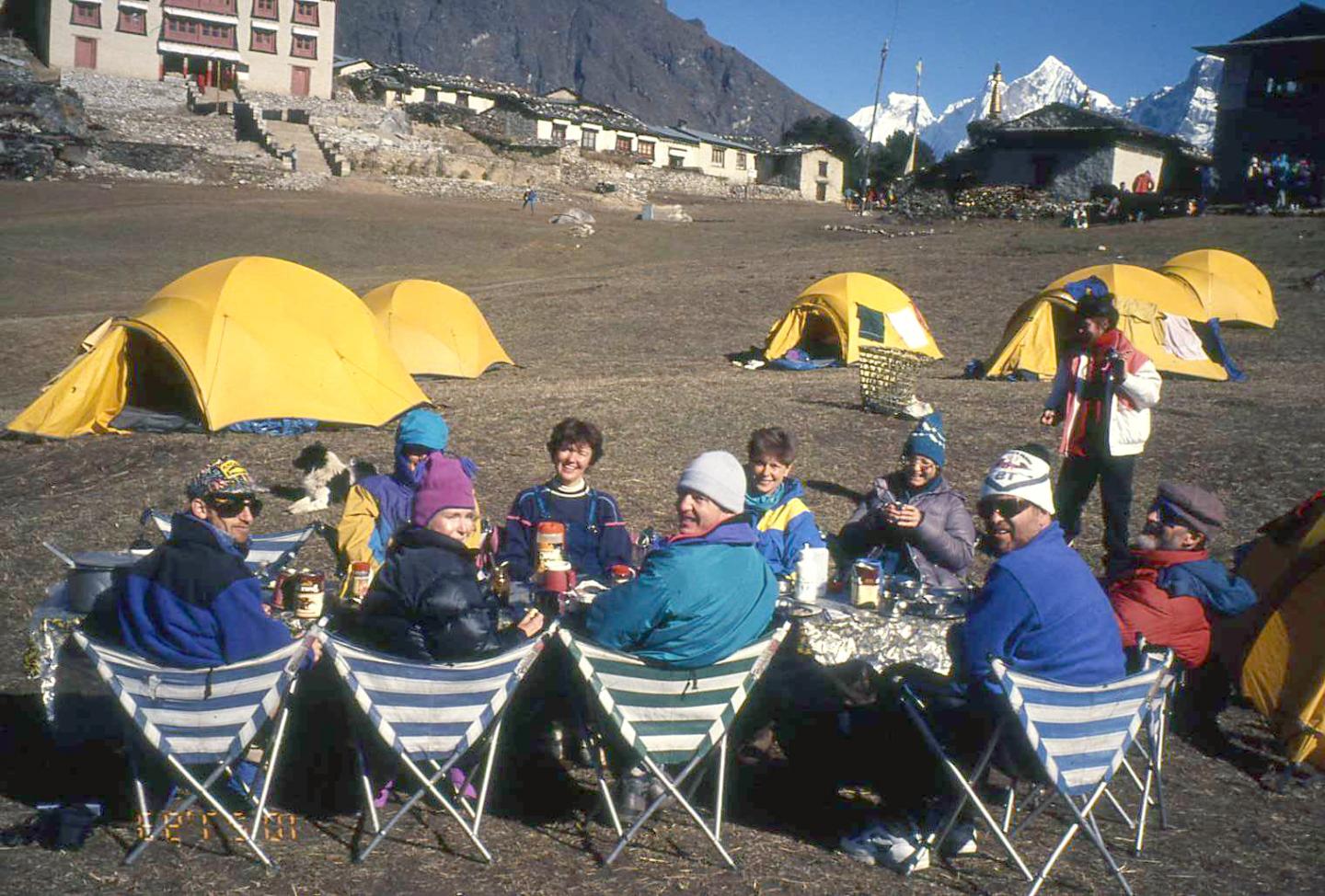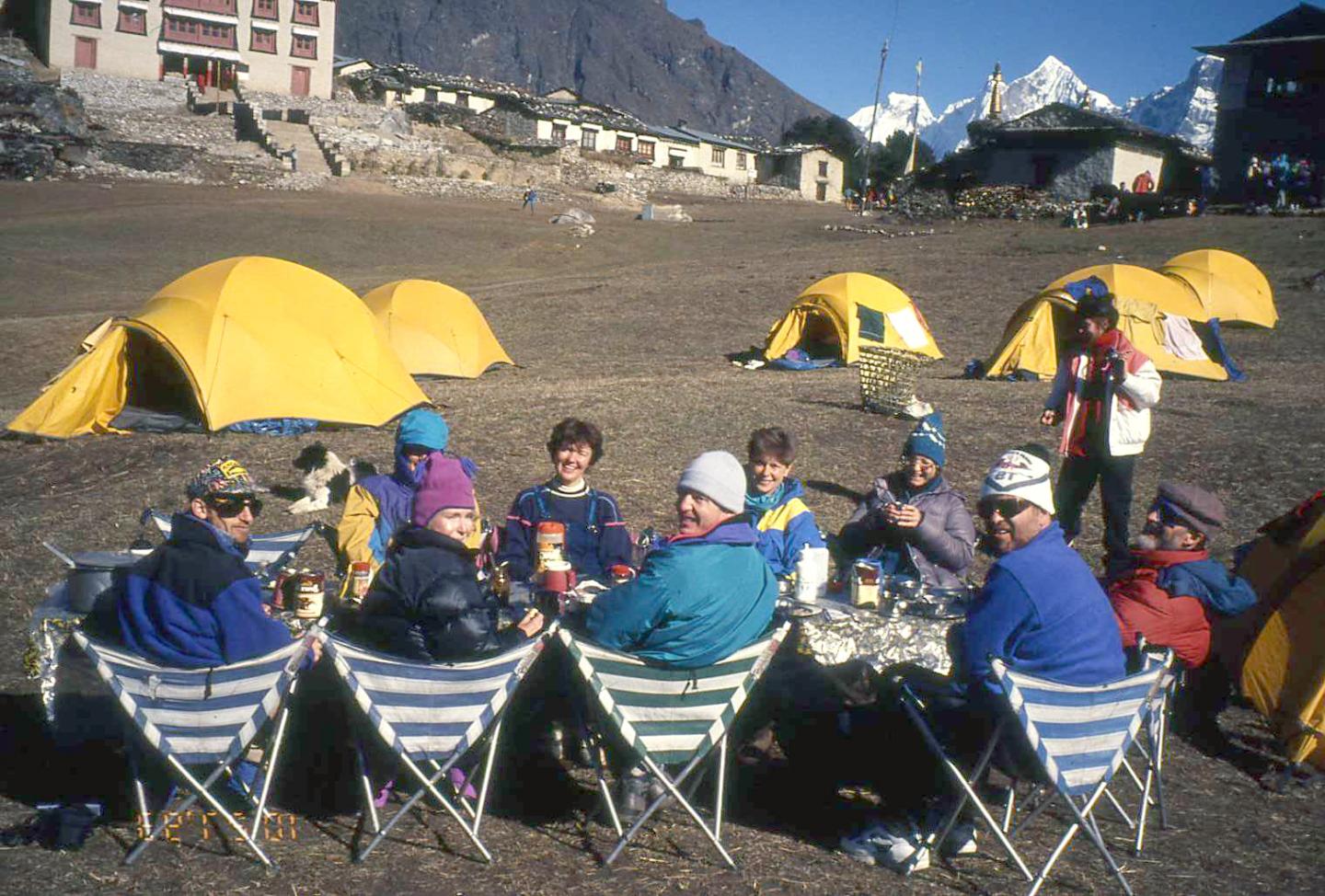
Credit: Buddha Basnyat
Philadelphia, PA, June 19, 2017 – Trekking and mountain climbing are quickly growing in popularity, but.one of the challenges that climbers face is acute mountain sickness (AMS). Previous studies have shown that ibuprofen is an effective way to reduce the risk of AMS. Investigators wanted to find out if acetaminophen, a commonly used anti-pain medicine like ibuprofen, would have a comparable effect. They found almost no difference in the performance of both drugs, suggesting that acetaminophen may be another effective prophylactic treatment for AMS. Their results are published in Wilderness & Environmental Medicine.
AMS occurs when the body does not properly acclimatize to increasing elevation. The gold standard of prophylactic medication for AMS is acetazolamide, a prescription medication with distressing side effects like tingling and burning sensation (paresthesia), especially in the fingers and toes, and the risk of an allergic reaction. While ibuprofen had been shown to reduce the risk of AMS, it may have common unwanted side effects. Therefore, investigators wanted to assess whether acetaminophen, a popular and readily available drug similar in action to ibuprofen with fewer gastrointestinal side effects might also reduce the risk of AMS.
"The results of this study found no significant difference in the incidence and severity of AMS between prophylactic dosing of acetaminophen and ibuprofen," noted the study's lead investigator Buddha Basnyat, MD, from the Oxford University Clinical Research Unit, Kathmandu, Nepal, and the Himalayan Rescue Association and the Centre for Tropical Medicine and Global Health, University of Oxford, UK, and his co-investigators. "These results suggest that acetaminophen performs similar to ibuprofen in the prevention of AMS in partially-acclimatized subjects."
AMS is potentially deadly. The condition can often start out with symptoms normally associated with altitude sickness: headache, dizziness, fatigue, upset stomach, and poor sleep. If left untreated, AMS can progress and cause fatal neurologic or pulmonary conditions. "The best prevention of altitude illness is a slow ascent," explained Dr. Basnyat and his co-investigators. "However, proper acclimatization might be ignored or deemed impractical by mountain climbers, hikers, local pilgrims, rescue teams, or military operations."
A double-blind randomized trial followed 332 non-Nepali participants along the Everest trekking route. Subjects were recruited in both Pheriche (4371 m elevation) and Dingboche (4410 m) and instructed to take either acetaminophen or ibuprofen three times a day until they reached Lobuche (4940 m) where they were assessed using the Lake Louise Questionnaire, a well-established tool, to determine whether or not they had AMS. While some of the climbers did present with AMS at Lobuche, investigators found no statistically significant difference in the incidence and severity of AMS between the two groups.
"This finding suggests that the pathophysiology of AMS may not only be dependent on arachidonic-acid pathway and inflammation triggered by ibuprofen, but also other mechanisms that mediate nociception influenced by acetaminophen," concluded Dr. Basnyat and his co-investigators. "More studies need to be done, but this study clearly shows acetaminophen may be effective in the prevention of AMS and could be potentially useful for people who want an alternative drug to acetazolamide for the prevention of AMS."
"We appreciate the efforts of these investigators to evaluate questions that can impact the health and safety of many who journey into the high-altitude realm," stated Neal Pollock, PhD, editor-in-chief of Wilderness & Environmental Medicine, "and we are pleased to share the results with the community through the journal."
###
Media Contact
Theresa Monturano
[email protected]
215-239-3711
@elseviernews
http://www.elsevier.com
Related Journal Article
http://dx.doi.org/10.1016/j.wem.2016.12.011
############
Story Source: Materials provided by Scienmag





